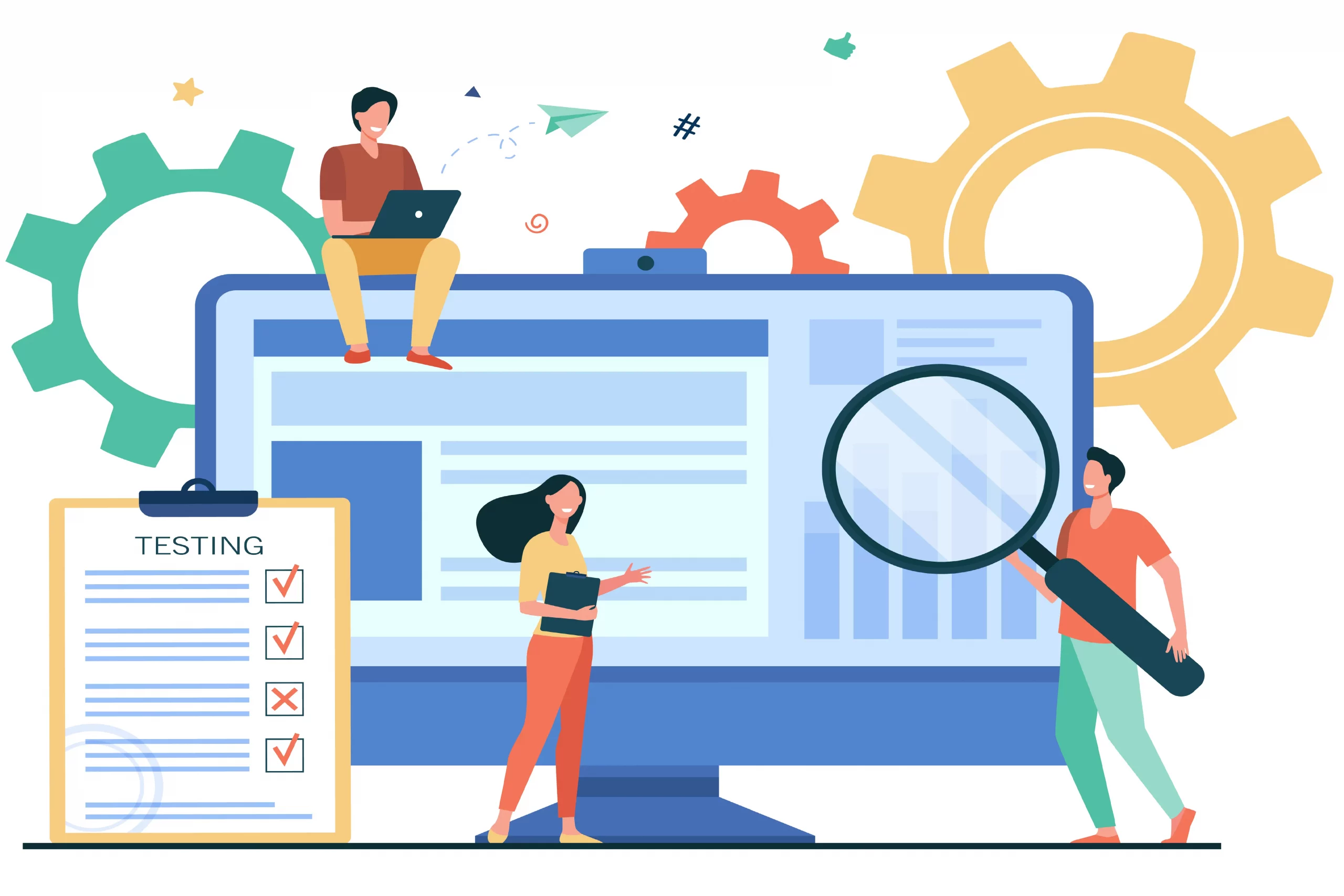The importance of Software Quality Assurance Engineers can be comprehended from the scenario where you access an app or visit a website and realize some of its features don’t work properly, it keeps crashing, and the app is not doing what it’s supposed to do.
Ensuring none of that happens is what SQA engineers do for a living. They’re the unsung heroes who ensure the software works smoothly fulfilling its objectives. Without them, we’d be dealing with glitchy apps, broken features, and a whole lot of headaches.
If put in simple words, a Software Quality Assurance Engineer is responsible for testing and assessing software to ensure it meets the necessary quality standards before it hits the market.
Let’s break down what they do and why it matters.
Testing, Testing, and More Testing
The core responsibility of SQA engineers is testing the software, not just pushing random buttons and features of the product to check if they work. SQA engineers put together detailed test cases, keeping every possible scenario in mind, they run manual tests and interact with the software as a user. They also keep in place automated tests where features are tested through written tests.
Automated tests are particularly useful for checking the same thing over and over (like when new code is added) to make sure nothing breaks in the process.
Identifying Bugs Before They Cause Trouble
SQA engineers make sure no bugs walk free, identifying and catching the bug that is about to mess up the software is a specialty of excellent SQA. By detecting and reporting these issues, they help developers fix problems beforehand that could otherwise cause a poor user experience. Imagine if the “Buy Now” button on an e-commerce site didn’t work – a disaster, right? SQA engineers make sure such crucial features work flawlessly.

Collaboration with Developers
SQA engineers are required to work closely with developers, while they write code and build the feature, SQA ensures the stability of the feature and the possibility of any issue.
This collaboration can sometimes be tricky because after all, nobody likes hearing that their code has problems, but it’s vital for delivering a top-notch product.
SQA engineers don’t just say, “Here’s a bug, go fix it.” They provide detailed information about what went wrong, where it happened, and how it can be replicated. Their suggestions for preventive measures help developers track down the issue quickly. Communication and teamwork are key, as both roles work toward the same goal: delivering highly optimized software.
Continuous Improvement and User Satisfaction
An SQA engineer’s job doesn’t end after the software is launched, instead, it increases if anything. They need to keep up with the updates, new features, and overall maintenance of the software. Continuous testing is necessary for the health of the software and its improvement.
SQA engineers are always looking for ways to improve testing processes, making sure that quality stays high as the software evolves.
At the end of the day, SQA engineers are responsible for making sure that users have the best experience possible. SQA helps maintain a software’s reputation, and popularity, and keep the users happy by making sure it is bug-free, intuitive, and reliable.
In Conclusion
Software Quality Assurance Engineers are a necessary evil in the tech industry. Without them, we’d all be pulling our hair out over apps that crash or websites that don’t work, and with them, the developers pull their hair out in frustration.
Their attention to detail, collaboration with developers, and commitment to delivering quality make them indispensable in creating reliable and user-friendly software.
If you’re ever using an app that works seamlessly, give a silent nod to the SQA team—they’ve likely saved you from more frustration than you know!
FAQs
Q1: What is the role of an SQA engineer?
An SQA (Software Quality Assurance) engineer ensures the quality of software by developing test plans, executing tests, and identifying bugs. They focus on maintaining software standards throughout the development process to deliver a high-quality product.
Q2: What is the role of a QA engineer in SDLC?
A QA (Quality Assurance) engineer’s role in the Software Development Life Cycle (SDLC) is to test and validate software at each stage of development, ensuring it meets quality requirements, functions correctly and aligns with user needs before release.
Q3: Does SQA require coding?
Although SQA engineers may not always need deep coding skills, some basic coding knowledge is beneficial for tasks like writing automated test scripts, debugging, and understanding the software architecture.
Q4: What skills are required for an SQA engineer?
- Knowledge of testing methodologies and tools
- Attention to detail
- Problem-solving
- Understanding of software development processes
- Basic coding (helpful for automation)
- Communication and teamwork
Q5: Does QA need SQL?
Yes, QA engineers often use SQL to validate data in databases, write queries for data verification, and ensure that backend data corresponds correctly with front-end actions.
